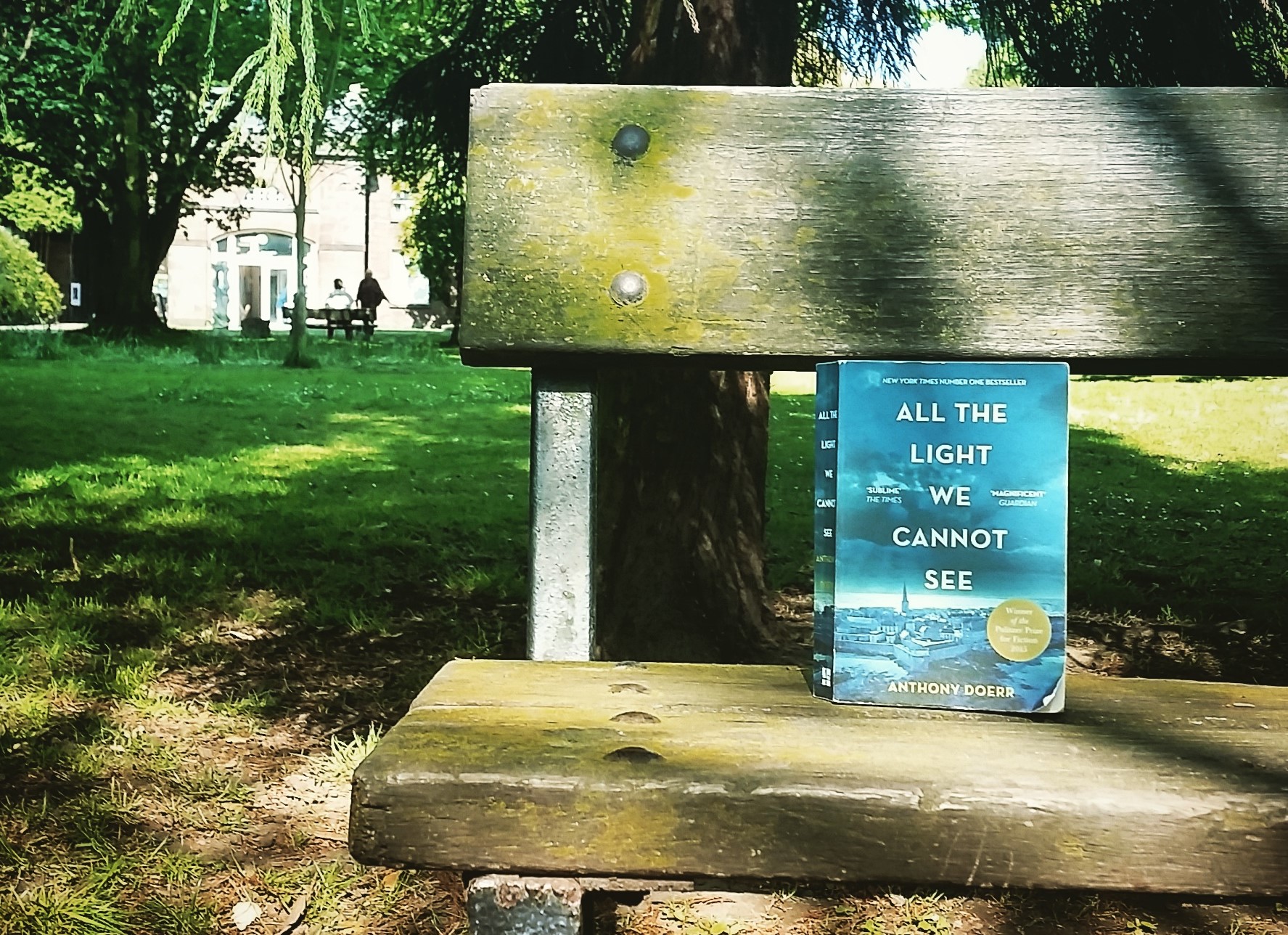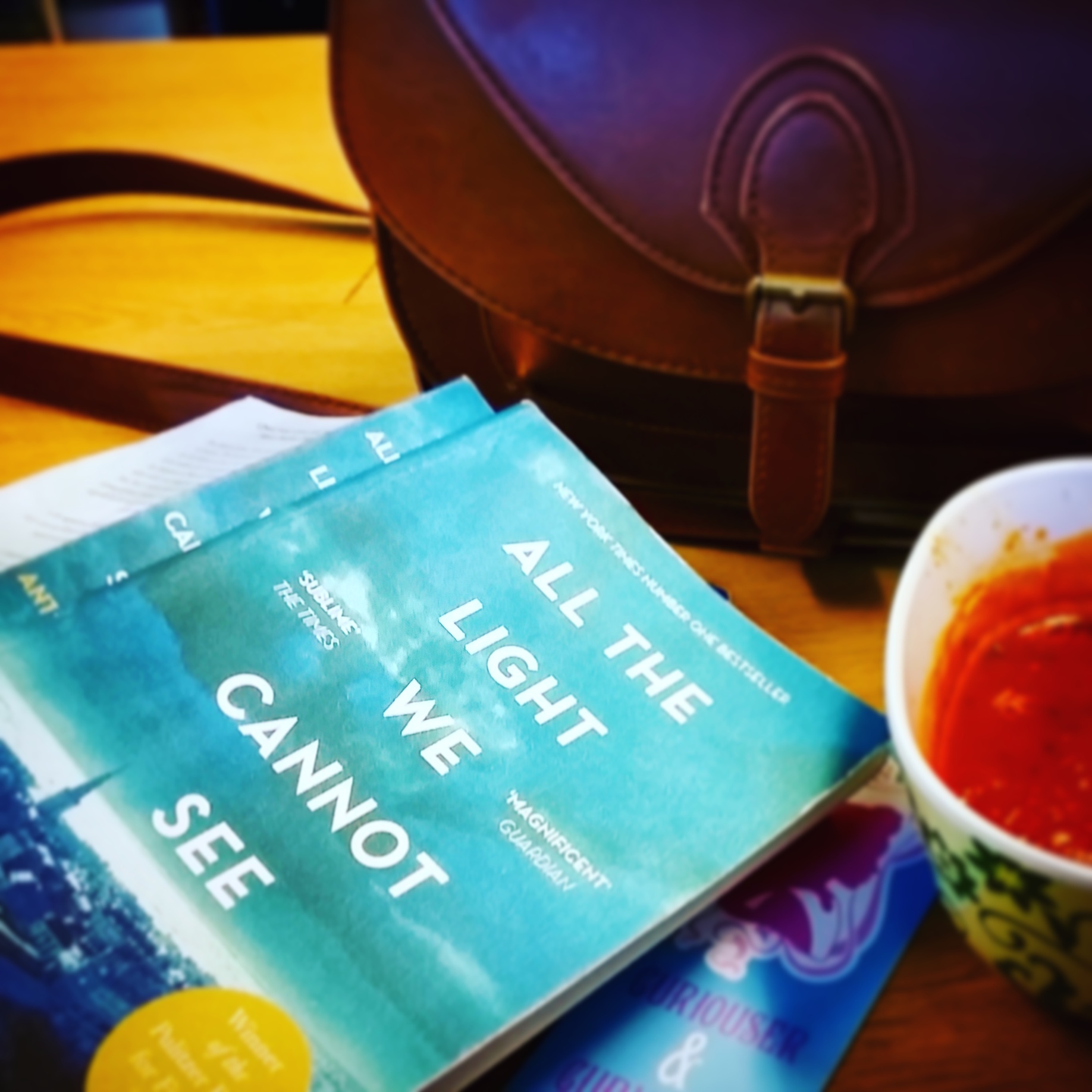Recommended Reads: All The Light We Cannot See by Anthony Doerr

When you read a book that stays with you, the only thing to do is pass it on. Introducing a long overdue Recommended Read.
“If only life were like a Jules Verne novel, thinks Marie-Laure, and you could page ahead when you most needed to, and learn what would happen.”
Winner of last year's Pulitzer Prize for Fiction, All The Light We Cannot See by Anthony Doerr is nothing short of a masterpiece. It's nothing short at all actually. Captivating the reader for a lengthy 530 pages, this is indeed a long read, yet the very short chapters which serve as beguiling snippets of action make it a real page turner.
I devoured this book over the course of a few bleak weeks last November and it remains vividly coupled in my mind with steaming bowls of tomato soup and mugs of tea enjoyed behind rain splattered windowpanes. Picking it up in a pokey little bookshop in Devon the morning after the Paris attacks, perhaps I was looking for something which might proffer some sense of comfort or explanation, All The Light We Cannot See went much further, leaving a profound impression that has yet to fade.
The novel follows Marie-Laure, blind since the age of six, as she learns to navigate a newly dark and menacing world. Rediscovering her native Paris through the miniature model her father has built, Marie-Laure must learn to feel life by counting steps, trusting the smells and sounds of the city and the Museum of Natural History where her father guards an invaluable diamond with a shadowy history. Troubled for her father's safety by rumours that the diamond's curse will bring sorrow on anyone who carries it, Marie-Laure escapes into the braille books of Jules Verne and Victor Hugo where adventures are glorious and triumph inevitable.
But when Paris falls to Nazi occupation, Marie-Laure and her father must flee to Saint-Malo, the walled city by the sea, where the war thrusts upon them an adventure more perilous than anything she has read in a book.
Running parallel to Marie-Laure's story, German orphan Werner is plucked from a gloomy future working in the eternal darkness of the mines to study mechanics at an elite school in Berlin after his natural flair for fixing radios comes to the attention of a local Nazi officer.
“Open your eyes and see what you can with them before they close forever.”
Witnessing the callous severity of the Nazi regime as it's influence infects his education and his peers, Werner finds himself returning again and again to the happy memories of evenings spent in the old attic room with his little sister, listening to a mysterious Frenchman on the radio. It is the thought of his loyal, obstinate sister that holds Werner apart from the world he now inhabits. Her letters, full of questions blacked out by the school's censors, remind him of a past life, a past self which his superiors and peers are bent on beating out of him.
Werner has escaped the orphanage and the life of hard labour her was destined for, but he is still trapped. He owes his change in fortunes to the Nazis and yet he cannot surrender himself to the zeal and loyal subservience which sets him apart from his classmates.
"You have minds," Bastian murmurs one evening in the refectory, each boy hunching almost imperceptibly farther over his food as the commandant's finger grazes the back of his uniform. "But minds are not to be trusted. Minds are always drifting toward ambiguity, toward questions, when what you really need is certainty. Purpose. Clarity. Do not trust your minds."
As the war drags on Marie-Laure and Werner's fates draw closer, their paths destined to cross amidst the rubble and destruction of Saint-Malo, yet the drama and suspense leave the reader with no certainties. Bombs drop on the seaside town, the war continues to rage outside number 4 rue Vauborel and although the house still stands and Marie-Laure's sanctuary of dusty books and contraband radios remains intact, the danger creeps closer.
A thoroughly gripping novel, Doerr achieves moments of luminous beauty in a very dark world throughout All The Light We Cannot See, shedding light on the personal battles people must withstand during times of war and celebrating the enduring humanity in which they must place their faith.
This is not your conventional narrative of war, it is both a delicate and powerful novel which will absorb the reader long after they have set it back on the shelf. It is a book which I shall, inevitably, return to again and again in coming years but it will remain fixed for me, a symbol of light in that dreary November when the world stood with Paris in the face of terror. That speaks to the poignancy of the novel as well as that particular period in recent history, All The Light You Cannot See paints a rich portrayal of a time and place during the Second World War but it will also frame the time and place in which you read it, such is the impression it leaves on the reader.
Share
Related Articles

Storybarn Book of the Month: Saving the Butterfly
This month, as part of Refugee Week (16-22 June), we've been taking a look back at one of our favourites…

June’s Stories and Poems
This month we are celebrating the natural world, and especially the many wonderful creatures that live within it, with June’s…

April’s Monthly Stories and Poems
Our year of Wonder with The Reader Bookshelf 2024-25 is coming to a close – though we won’t be putting…


